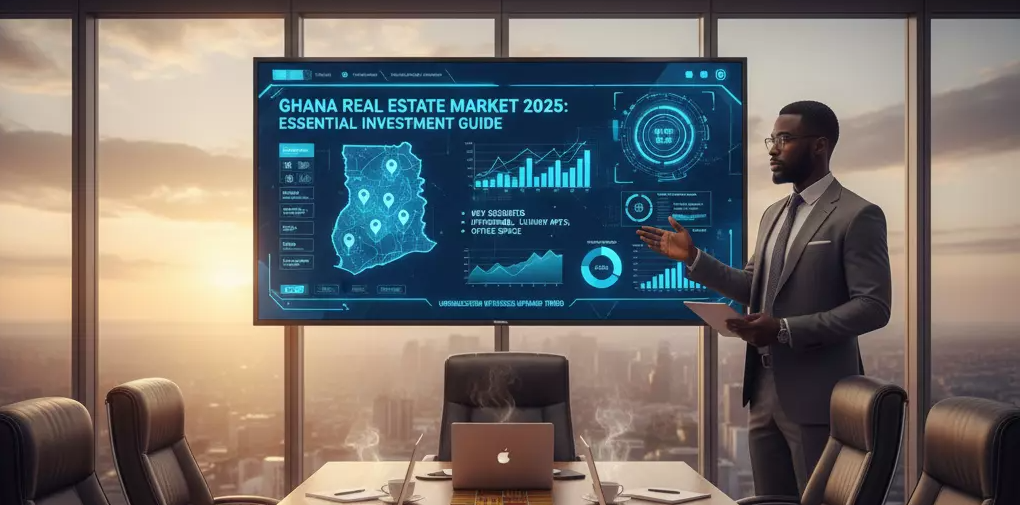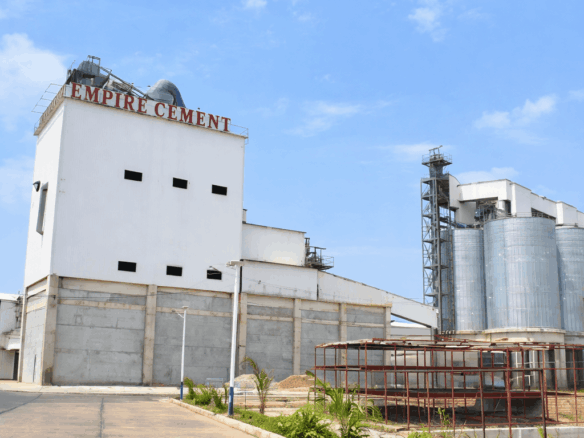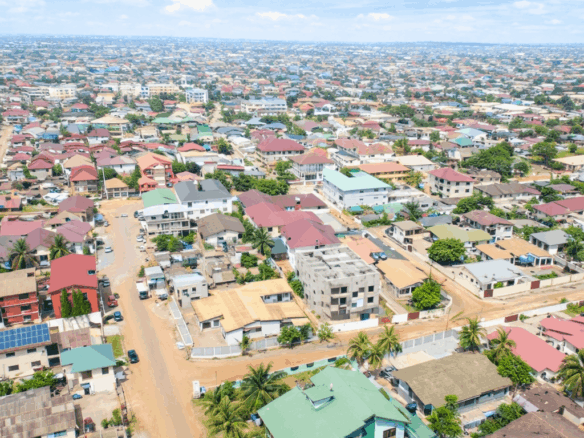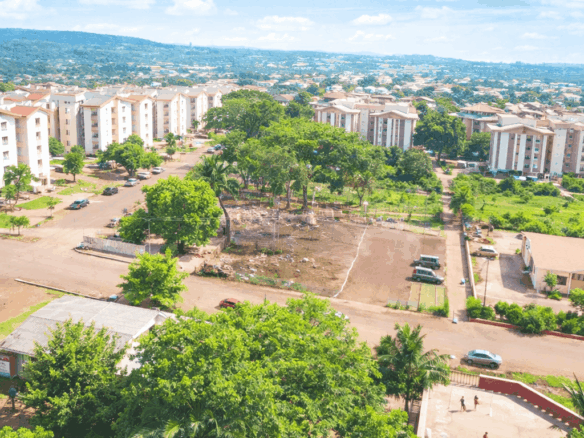Ghana’s real estate market in 2025 stands as West Africa’s most dynamic investment destination, driven by robust economic growth, rapid urbanization, and strategic government initiatives reshaping the property landscape. With GDP growth hitting 6.3% in 2024 and projections pointing to an even stronger 2025, this economic expansion is spurring unprecedented demand across the nation.
From bustling Accra to emerging markets in Kumasi and Takoradi, Ghana’s property sector offers compelling opportunities for investors, developers, and homebuyers navigating this rapidly evolving landscape.
Market Performance and Growth Drivers
The Ghana Statistical Service reports a 15% year-over-year increase in residential building permits, while commercial property values in major urban centres like Accra and Kumasi have jumped by an average of 12%. The residential property market is projected to grow by 10% in 2025, with experts predicting 12% growth in commercial property investments.
Key 2025 Performance Indicators:
- Foreign direct investment surged 18% in 2024, continuing into 2025
- Housing demand in Kumasi projected to grow by 8% due to urbanization
- Ghana’s urban population projected to reach 70% by 2030
- Affordable housing production: 35,000-40,000 units annually
Urbanization Driving Ghana’s Real Estate Market in 2025
Ghana’s urban population is projected to reach 18.4 million, putting immense pressure on existing housing stock and leading to a widening gap between supply and demand. This demographic shift represents the most significant force shaping the property market.
Regional Investment Opportunities:
- Accra Metropolitan Area: Premium pricing with infrastructure advantages
- Kumasi and Secondary Cities: Higher yields at lower entry costs
- Western Region: Tourism and oil industry driving luxury beachfront developments
- Northern Regions: Industrial properties and affordable housing growth
Addressing the Housing Crisis
Ghana faces a staggering housing deficit of approximately 1.8 million units, decreased from 2.8 million units in 2010. A home costing between GHS100,000 ($17,100) and GHS200,000 ($34,200) is considered affordable, while current production must double to meet the required 100,000 units annually.
Ghana Property Finder’s comprehensive listings showcase diverse options, from luxury properties in established areas to affordable developments in emerging neighborhoods like Kwabenya and Ayi Mensah.
Government Initiatives and Financing Revolution
The National Housing and Mortgage Fund (NHMF) facilitates cheaper local currency mortgage loans to workers and construction finance to developers, with GHS45 million invested and plans to increase funding to one billion Ghana cedis. The fund has already delivered 204 housing units in Tema, demonstrating tangible results.
Key Government Programs:
- NHMF providing subsidized construction financing
- Streamlined land registration through the Land Administration Project (LAP)
- Tax incentives for real estate developers
- Infrastructure development projects enhancing connectivity
Foreign Investment and Market Innovation
Foreign investors from the United States, United Kingdom, and China are increasingly recognizing Ghana’s potential as a stable and profitable real estate market. Interest rates range from 25-35% for most financing, though government subsidized programs offer rates under 20%.
The rapid adoption of digital technologies is transforming property transactions, with platforms like Ghana Property Finder providing comprehensive market insights and seamless property discovery experiences.
Investment Strategies for Success
High-Growth Investment Areas:
- Prime Urban Locations: East Legon, Cantonments, Airport City
- Emerging Markets: Kwabenya, Ayi Mensah, Western Region coastal areas
- Commercial Opportunities: Office spaces, retail centers, mixed-use developments
Successful investors focus on thorough due diligence, partnership with local experts, and understanding Ghana’s evolving market dynamics to maximize returns while minimizing risks.
Frequently Asked Questions
Q: What is the current housing deficit in Ghana and its investment implications?
A: Ghana faces a 1.8 million unit housing deficit, creating substantial demand for affordable housing and significant opportunities for developers focusing on this segment.
Q: How are government initiatives like the NHMF impacting the market?
A: The NHMF provides subsidized financing with GHS45 million invested, facilitating cheaper mortgages and construction finance, with plans to scale to one billion cedis.
Q: What financing options are available for real estate investments?
A: Options include traditional mortgages (25-35% rates), government subsidized programs (under 20%), construction loans, and microfinance for smaller investments.
Q: Which regions offer the best investment opportunities in 2025?
A: The Western Region (oil and tourism), northern regions (industrial), and emerging suburban areas around Accra and Kumasi present the most promising opportunities.
Q: How is technology changing Ghana’s real estate market?
A: Digital platforms, virtual tours, and online transactions are making the market more accessible, with platforms like Ghana Property Finder leading this transformation.
Ready to capitalize on Ghana’s thriving real estate opportunities? Explore Ghana Property Finder’s extensive property listings to discover verified investments across all price ranges and locations. Whether you’re seeking luxury developments or affordable housing opportunities, our platform provides the market insights and expert guidance you need to succeed in Ghana’s real estate market in 2025. Start your property search today and join the thousands of investors already benefiting from Ghana’s dynamic property sector.






